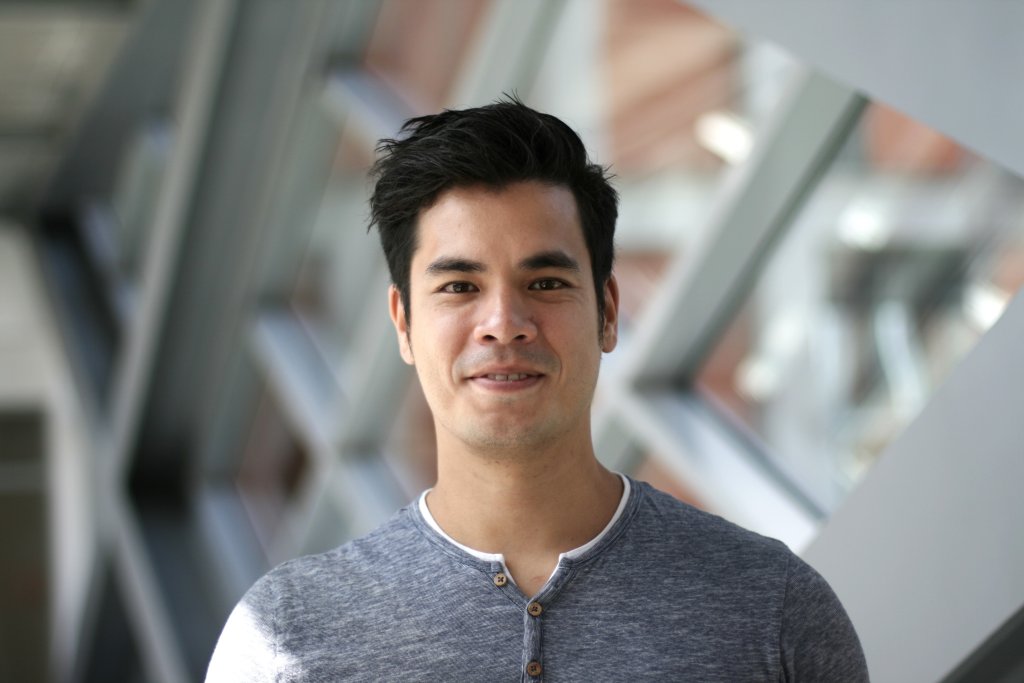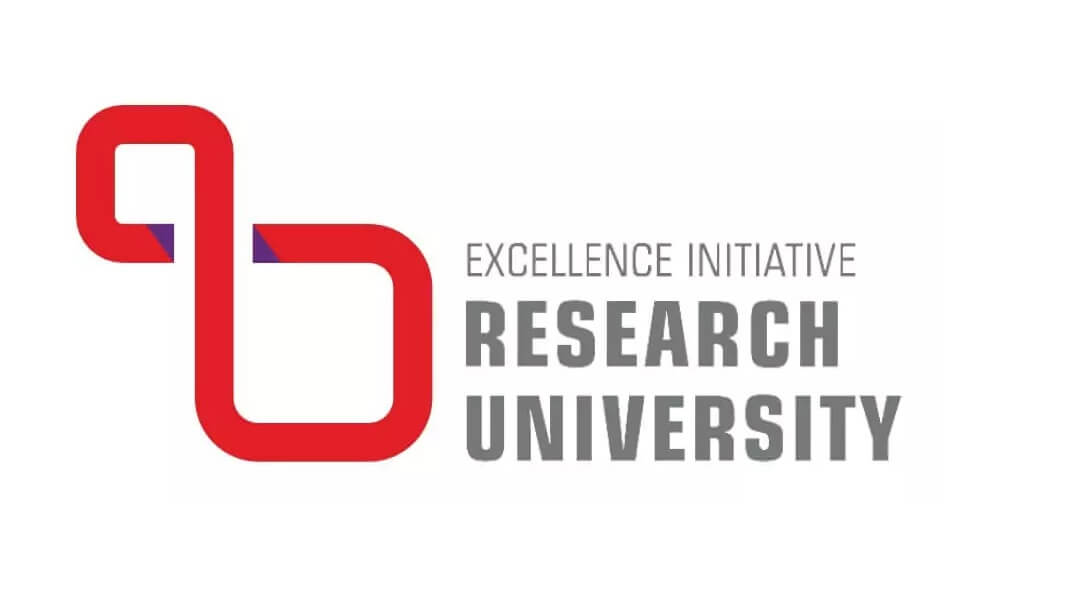Advancing Physics Research Abroad: Dr. Jeffrey Everts’ Postdoc Journey at UW IAS
Doctor Jeffrey Everts is one of the brilliant minds at the Institute for Advanced Studies. We had the pleasure of speaking to him about his fascinating research journey, the intriguing phenomena he has unravelled, and the exciting opportunities that await future postdoctoral researchers.

Photo: Doctor Jeffrey Everts, author: Marta Kowol.
INSTITUTE FOR ADVANCED STUDIES: Can you tell us about your research focus and what led you to pursue this particular area of physics?
DOCTOR JEFFREY EVERTS: I work in the field of soft matter physics, which revolves around materials that can deform under the influence of an external force. My primary interest lies in complex fluids, which I found fascinating during my undergraduate studies. We see many examples of such systems in our daily lives. Mayonnaise, milk, and gels, but also liquid crystals and the cytoplasm of a biological cell are complex liquids. The inspiring lectures delivered by professors during my studies in this field ignited my passion. When the opportunity for a PhD in soft matter physics came up, I eagerly pursued it, driven by my deep curiosity to explore various aspects of physics. Currently, I collaborate with researchers from the University of California, investigating the fascinating transfer of concepts from magnetism to the realm of complex fluids, such as liquid crystals. Furthermore, I work closely with Utrecht University and the University of Ljubljana. At the University of Warsaw, I work in microhydrodynamics, which involves the response of complex liquids to liquid flow.
You mentioned being drawn to lectures given by professors in the field during your undergraduate studies. Could you tell us more about who specifically inspired you or served as an authority figure in this area of research?
My motivation stems from the insightful teachings of those who mentored me in physics. These mentors have become my main source of inspiration throughout my journey. To mention a few, Paul van der Schoot, my bachelor thesis supervisor; René van Roij, my PhD supervisor; and Miha Ravnik, my first postdoc supervisor. While it is impressive to see Nobel Laureates’ names on papers, true understanding and inspiration arise when you have a personal relationship with someone. Witnessing their thought processes and having engaging discussions create a different level of inspiration.
You recently published a landmark paper in PNAS, entitled ‘Realization of the Brazil-nut effect in charged colloids without external driving’. Can you tell us more about it?
This article explores a fascinating phenomenon observed in certain liquids comprising small micrometre-sized charged particles, called charged colloids. When the particles do not carry an electrical charge and are exposed to gravity, the heavier particles are found at the bottom, while the lighter particles are at the top. In 2004, researchers predicted that under specific conditions, involving the charge of the particles and the ions surrounding these particles, the heavier particles would float on top of the lighter particles, which defies common expectations. This intriguing phenomenon is known as the colloidal Brazil nut effect, named after the movement of larger Brazil nuts to the top when a mixture of large and small nuts is shaken. Unlike its normal counterpart, the colloidal version occurs naturally without shaking. This equilibrium phenomenon in physics had been theoretically predicted but had never been directly observed until now.
What was your contribution to this research?
During the first lockdown, I revisited the original model for the colloidal Brazil-nut effect and investigated under certain assumptions how the systems evolve in time before reaching the final state that does not change in time. This adjustment led to remarkable progress, as the experimental results perfectly matched the model’s predictions, but only at intermediate times before the final state was reached. The key insight was that stability depended on the observed time scale and whether there was “enough” time to reach a configuration with a Brazil-nut effect. By adjusting a single parameter linked to the particle charge, the theory aligned completely with experimental measurements, marking a breakthrough after years of puzzlement.
Given your inspiring journey in soft matter physics, including your collaborations with researchers from various research centres, could you share with us what led you to choose the University of Warsaw for your research pursuits?
I came to Poland in 2020 and joined the Institute of Physical Chemistry of the Polish Academy of Sciences (IChF PAN) as a postdoc under the NAWA (National Agency for Academic Exchange) ULAM fellowship. During my initial postdoc, I had the opportunity to work with Robert Hołyst, and I am still actively working on a challenging project involving diffusion in complex liquids, which is close to completion now. After my NAWA fellowship ended, a new position opened up at the University of Warsaw, which sounded like a perfect fit for me. The prospect of being closer to students and fostering knowledge exchange was the main reason for applying for this position. I strongly believe in keeping knowledge alive and that interactions with students are vital to research. Their fresh perspectives and contributions can be incredibly valuable in advancing our work.
And why did you decide to conduct your research abroad?
I believe it is essential to experience living in another country as it brings a fresh perspective and enriches one’s research endeavours. Coming from the Netherlands, I have noticed significant differences here in Poland. The food, for example, is better and the weather is more to my liking. Being in a different cultural and academic environment has benefited my personal and professional growth.
With your first-hand experience of conducting research abroad and the valuable insights it has provided, what advice would you share with individuals interested in pursuing a postdoc in physics?
When considering a postdoc in physics, several crucial aspects should be kept in mind. First, choose your supervisor wisely. Find someone who is willing to invest time and guidance into your development as a researcher. A supportive and understanding supervisor can make a significant difference during your postdoc journey.
Remember that research requires creativity and problem-solving skills. Be prepared for challenges and setbacks, and embrace the learning process, recognising that failures are a part of the journey toward success.
During your PhD, consider starting with a project with a lower risk of something going wrong. The sense of achievement of publishing even a smaller paper can boost your morale and confidence. Choose a project you genuinely enjoy, as working on something you dislike can be demotivating.
After completing your PhD, I recommend pursuing at least one postdoc, provided you have a grant. It is an excellent opportunity to gain life experience, understand different cultures, and establish valuable connections. During a postdoc, you can explore your ideas and fully unleash your creativity, which is a rare opportunity in the professional world.
Make the most of this time to travel, present your research at conferences, and build your network. It is a period of ultimate freedom to explore and experiment with your research interests. However, keep in mind that postdoc positions with complete freedom are time-limited, and later on, you may need to apply for grants, which require aligning your research with the university’s goals.
Although postdocs can be challenging, they offer unparalleled opportunities for personal and academic growth. Ultimately, your experiences during the postdoc phase will help shape your career decisions and pave the way for your future in physics.
For the final question, we would like to know your future plans and aspirations.
I have a multitude of ideas that I am eager to explore, but time is my main constraint. My to-do list already includes more than ten projects I would like to see published, as they hold significant promise. Starting in October, I will take on an assistant professorship, which provides more stability than a postdoc life. In addition to my research responsibilities, I will also be teaching.
To further challenge myself, I have set the goal of developing a completely new course from scratch. This involves organising and designing the entire course. It is a new experience for me and I look forward to growing and learning in this role.
Interviewed by: Agata Sawicka
If you are a young researcher looking for an environment that fosters curiosity, innovation, and growth, the Institute for Advanced Studies, University of Warsaw, may be the perfect destination for your postdoctoral research journey. Join our vibrant community of scientists and embrace a world of endless possibilities. Learn more about our fellowships programmes.
Details of Doctor Jeffrey Everts’ publication
Van der Linden, M.N., Everts, J.C., Van Roij, R. et al., „Realization of the Brazil-nut effect in charged colloids without external driving”, The Proceedings of the National Academy of Sciences of the United States of America, DOI: 10.1038/s41586-023-06171-9.

